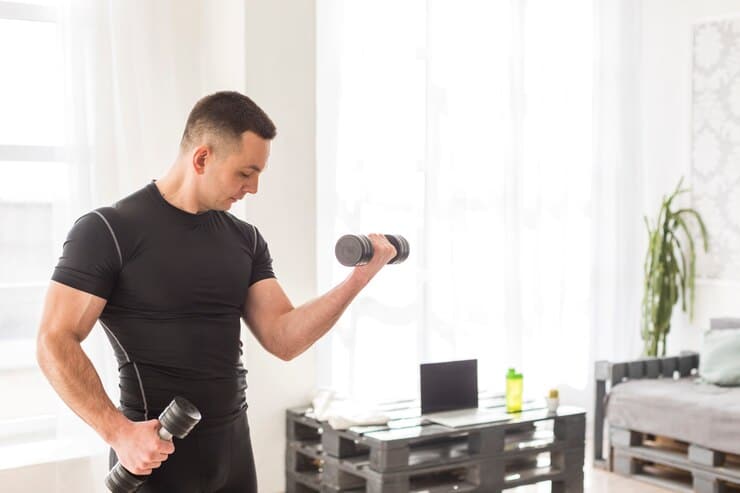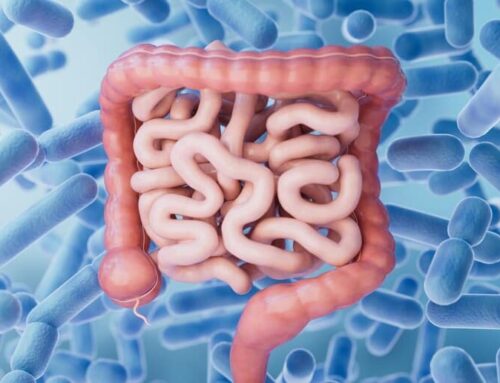Exercise means moving your body so that muscles work and the body burns calories. It is not just beneficial physically but also mentally. It helps in a lot of ways like controlling weight and fighting illnesses. Exercise can also make you feel happier, more energetic, and sleep better. The U.S. Department of Health and Human Services says it’s good for adults to do at least 150 minutes of moderate aerobic activity each week.
Exercise is great for your muscles, bones, brain, and even your skin. It reduces the risk of getting sick and helps with pain. Doing exercise regularly makes you live a better life.
Key Takeaways : Regular Exercise For Health
- Regular physical activity benefits health physically and mentally.
- It assists in weight management, health improvement, mood enhancement, and energy increase.
- The U.S. recommends 150 minutes of moderate exercise weekly, plus strength exercises twice a week.
- Regular exercise enhances happiness, health, and activity levels.
- It boosts skin health and helps with pain.
Regular Exercise For Health: The Key to a Healthier Life
Doing exercise all the time is super important for staying healthy. The Mayo Clinic says it can make you feel happier, give you more energy, make it easier to sleep, and help with your love life. It pushes your body to make hormones that help you feel better and cut down on bad feelings like being sad, nervous, or stressed.
Working out also makes your heart stronger by making sure your blood moves well and keeps you ahead of heart diseases and strokes. And it’s not just your heart that benefits. It keeps your muscles and bones strong, which is key as you get older. To stay healthy, the U.S. Department of Health and Human Services suggests adults should spend at least 150 minutes doing moderate exercises or 75 minutes doing hard exercises each week. They also say do muscle exercises twice a week. Making exercise a normal part of your life can do wonders for your physical and mental health.
Benefits of Regular Exercise
There are lots of reasons to exercise and all of them are good for you. It can improve your mood, your energy, and how well you sleep. Regular workouts are also vital for staying fit and keeping your heart healthy. Mixing up your exercises, like doing cardio, lifting weights, and high-impact training, is the best way to take care of yourself.
Exercise Controls Weight and Combats Health Conditions

Regular exercise is key in managing weight and avoiding health issues. The Mayo Clinic says it helps by burning more energy. This happens by boosting your metabolism. Doing both aerobic and resistance exercises is best for losing fat while keeping muscle.
Maintaining a Healthy Weight
Staying active helps people keep their weight down. It lowers the chance of certain health problems. Mixing up your exercises, like walking or cycling, keeps your metabolism up. This supports your efforts to stay at a healthy weight.
Preventing and Managing Chronic Diseases
Exercise doesn’t just help with weight. It also decreases the risk of many chronic illnesses. These include heart disease, diabetes, and cancer. It’s also good for easing high blood pressure, high cholesterol, and inflammation. Both the American College of Sports Medicine and the U.S. Department of Health and Human Services recommend staying active to keep fit and lower disease risks.
Exercise Boosts Mood and Energy Levels

Exercise is a great way to feel better and have more energy. The Mayo Clinic says it can make hormones that make us happy. It also lowers feelings of being down, worried, or tense. Doing regular exercise not only makes us feel better, it makes our heart and lungs stronger. This lets our body give more air and important stuff to our tissues.
A study from 2019 showed that just 10–30 minutes of moving can brighten our day. Working out can make us feel proud and better about ourselves. It not only makes our mood better but also gives us a confidence and energy boost. Making exercise a habit helps a lot with feeling happier, less stressed, and having more get-up-and-go.
| Benefits of Exercise on Mood and Energy | Impact |
|---|---|
| Mood Improvement | Stimulates the production of hormones that improve feelings of happiness and reduce symptoms of depression, anxiety, and stress. |
| Energy Level Increase | Improves cardiovascular and respiratory function, allowing the body to deliver more oxygen and nutrients to the tissues. |
| Self-Confidence and Productivity | Provides a sense of accomplishment and well-being, helping to boost self-confidence and productivity. |
“As little as 10-30 minutes of exercise can be enough to improve mood.”
Adding exercise to your days can do wonders for your mind and body. This could be anything from a quick walk to yoga or lifting weights. It impacts not just how we feel but how much we can get done. So make it a part of your life and see the positive changes.
Exercise Promotes Better Sleep and Improves Sexual Health

Moving more can turn your sleep and sex life around for the better. The Mayo Clinic says working out helps your sleep through body repair at night. Plus, the heat your body builds during exercise can get you sleeping even deeper.
Exercise and Sleep Quality
A study from 2018 in the Journal of Physiological Anthropology found exercise, like stretching and resistance training, improves how well and how long you sleep. Mixing up activities can make sleep quality even better.
Exercise and Sexual Well-being
Exercise isn’t just for better sleep, but for a happier sex life too. A 2018 review in the Journal of Sexual Medicine showed men who did 160 minutes of exercise a week for 6 months had better erectile function. And for women, exercise could also boost sexual satisfaction, arousal, and sexual well-being as per a 2018 study in the same journal.
Making exercise a regular thing can be a game-changer for sleep and sex. This leads to a life that’s not just better but more complete and satisfying.
Exercise Strengthens Muscles and Bones

Exercise is crucial for strong muscles and bones. A 2022 review found that it boosts bone density in key areas. This can lower the risk of osteoporosis later in life. Impact exercises like gymnastics, running, or soccer are best for bone density. They work better than non-impact sports such as swimming or cycling.
Maintaining Muscle Mass and Strength
It’s important to keep up muscle and strength as we get older. This lowers the risk of getting hurt and not being able to do things. The American College of Sports Medicine says adults should do strength training exercises for big muscle groups twice a week. Including different types of exercises, like with weights or resistance, is good. It helps your muscles and bones stay healthy for years.
Improving Bone Density
Staying active can really boost your bone density. This helps prevent osteoporosis. But, to really make your bones stronger, you should mix up exercise. Try a bit of weight-bearing and resistance training. This way, your bones will stay strong and you’ll have less chance of breaking them as you get older.
Exercise Enhances Brain Health and Memory

Doing regular exercise is good for the mind. It helps the brain work better and keeps our memory sharp. Exercise sends more blood and oxygen to the brain. This boosts the growth of brain cells, thanks to hormones.
Exercise and Cognitive Function
Working out slows down brain aging. It also lessens the damage that leads to Alzheimer’s and dementia. Exercise is great for the hippocampus. This part of our brain helps with memory and learning.
Exercise and Alzheimer’s Disease Prevention
Making exercise part of our daily life can keep our brains healthy as we get older. It helps keep our thinking clear. Plus, it lowers the chances of getting Alzheimer’s or other problems.
Exercise Reduces Risk of Chronic Diseases

Staying active lowers the chance of getting some serious illnesses. The Mayo Clinic says working out helps cut heart disease and stroke risks. It makes our blood flow better and our fat levels in check.
Exercise and Cardiovascular Disease
Being active lessens the odds of heart issues and stroke. It boosts blood flow and makes cholesterol better. So, doing cardio exercises helps our hearts and stops these big problems.
Exercise and Cancer Prevention
Working out also ties into avoiding cancer, as a 2021 review shows. It might stop breast, colorectal, lung, and liver cancers. This is because it lowers swelling and boosts our body’s defenses.
Exercise and Type 2 Diabetes
Moving is key not just for heart and cancer health, but also for avoiding diabetes. Regular exercise makes our bodies respond better to insulin and manage sugar. So, it lowers the chance of getting type 2 diabetes.
The American College of Sports Medicine and U.S. Health Department advice is clear. They say adults must do both aerobic and strength exercises often. This keeps us healthy and away from chronic illnesses.
Exercise Offers Benefits for Skin Health and Pain Management

Exercise has many pluses for health. It can boost skin health and help with pain management. A review in 2018 showed how it fights the bad effects of free radicals, which can make skin age faster. The 2021 review found regular exercise helps slow skin aging, stops psoriasis, and makes venous leg ulcers heal better.
Exercise and Skin Aging
Keeping up with exercise is key for skin health and fighting skin aging. It fights oxidative stress, which causes early skin aging and skin issues. By doing moderate exercise, people can put off the signs of skin aging. This makes their skin look younger and healthier.
Exercise as a Natural Pain Relief
Exercise is a great way to deal with chronic pain naturally. It can make you tough against pain over time. A 2021 review said aerobic exercise helps relieve pain and makes life better for those with problems like chronic low back pain, fibromyalgia, and chronic shoulder disorders. Adding exercise to your daily routine helps with skin health and pain management.
Also Read : 10 Health Benefits of Cantaloupe to Keep You Strong and Healthy
Conclusion
Regular exercise is key for good overall health and wellness. It brings about many benefits of physical activity. These include feeling happier, sleeping better, and having a stronger body. Also, regular exercise improves how your brain works and lowers the chance of falling ill.
The U.S. Department of Health and Human Services advises healthy adults to move a lot each week. This means about 150 minutes of moderate activity or 75 minutes of something more intense. They also say it’s good to do activities that make your muscles stronger two times a week.
Doing different types of exercise, like aerobic, resistance, and impact training, is good for both body and mind. By making regular exercise a habit, people can really boost their overall health and quality of life.
Whether you want to get fitter or just be more active, sticking to regular exercise is powerful. Try out various workout plans and fitness routines to see what you enjoy. Making exercise part of your everyday life is important.
FAQs
What are the key benefits of regular exercise?
Regular exercise boosts mood and sleep. It also improves sexual health, muscle, and bone strength. Exercise benefits brain function and reduces disease risk.
How much exercise does the U.S. Department of Health and Human Services recommend for healthy adults?
They suggest getting 150 minutes of moderate activity or 75 minutes of intense activity each week. Include muscle exercises two times a week.
How can regular exercise help with weight management and chronic disease prevention?
It controls weight by using more energy and speeding up metabolism. Exercise cut risks of diseases like heart problems, diabetes, and cancer.
What are the benefits of exercise for mood and energy levels?
Physical activities make hormones that boost happiness and cut down on depression and stress. Exercise also puts more pep in your step by improving heart and lung health.
How can exercise improve sleep quality and sexual health?
It makes you sleep better by helping your body recover and slightly raising your temp. Exercise also makes for a better sex life for both men and women.
What are the benefits of exercise for building and maintaining strong muscles and bones?
Workouts boost bone density and keep muscles strong as you grow older. This helps avoid injury and staying active.
How can exercise benefit brain health and cognitive function?
It gets more blood and oxygen to the brain, making you think better and remember more. Exercise also makes your brain cells grow more.
How does regular exercise help reduce the risk of chronic diseases?
It makes your blood flow better and balances your cholesterol and metabolism. This keeps diseases like heart issues and diabetes away.
What are the benefits of exercise for skin health and pain management?
Exercising helps against skin damage and gives relief for pain conditions. It counteracts free radicals to slow skin aging. Also, it eases pain in the back, fibromyalgia, and chronic shoulder issues.
How can incorporating regular exercise into one’s lifestyle lead to overall health and wellness?
Workouts add up to a healthier and happier life. They improve physical and emotional health, making you more active and well.
Source Links
- https://www.healthline.com/nutrition/10-benefits-of-exercise
- https://www.ncbi.nlm.nih.gov/pmc/articles/PMC1402378/
- https://www.mayoclinic.org/healthy-lifestyle/fitness/in-depth/exercise/art-20048389








Leave A Comment